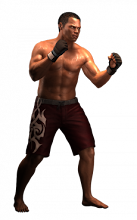The most common criticism of aikido is that it suffers from a lack of realism in training. The attacks initiated by uke (and which nage must defend against) have been criticized as being "weak," "sloppy," and "little more than caricatures of an attack." Weak attacks from uke cause a conditioned response from nage, and result in underdevelopment of the strength and conditioning needed for the safe and effective practice of both partners. To counteract this, some styles allow students to become less compliant over time but, in keeping with the core philosophies, this is after having demonstrated proficiency in being able to protect themselves and their training partners. Shodokan Aikido addresses the issue by practising in a competitive format. Such adaptations are debated between styles, with some maintaining that there is no need to adjust their methods because either the criticisms are unjustified, or that they are not training for self-defence or combat effectiveness, but spiritual, fitness or other reasons.
Another criticism is that after the end of Ueshiba's seclusion in Iwama from 1942 to the mid 1950s, he increasingly emphasized the spiritual and philosophical aspects of aikido. As a result, strikes to vital points by nage, entering (irimi) and initiation of techniques by nage, the distinction between omote (front side) and ura (back side) techniques, and the practice of weapons, were all deemphasized or eliminated from practice. Lack of training in these areas is thought to lead to an overall loss of effectiveness by some aikido practitioners.
Alternately, there are some who criticize aikido practitioners for not placing enough importance on the spiritual practices emphasized by Ueshiba. The premise of this criticism is that "O-Sensei’s aikido was not a continuation and extension of the old and has a distinct discontinuity with past martial and philosophical concepts." That is, that aikido practitioners who focus on aikido's roots in traditional jujutsu or kenjutsu are diverging from what Ueshiba taught. Such critics urge practitioners to embrace the assertion that "[Ueshiba's] transcendence to the spiritual and universal reality was the fundamentals [sic] of the paradigm that he demonstrated."
Article Source: http://en.wikipedia.org/wiki/Aikido
About Me
Archive
-
▼
2010
(26)
-
▼
August
(13)
- Steven Seagal Youtube Videos
- Hard To Kill
- Steven Seagal Aikido
- Aikido Uniforms and Ranking
- Aikido Criticisms
- Aikido Multiple Attackers and Randori
- Aikido Weapons
- Aikido Basic Techniques & Implementations
- Aikido Techniques
- Aikido Training
- Aikido History
- Aikido Etymology and Basic Philosophy
- What is Aikido?
-
▼
August
(13)




No comments:
Post a Comment